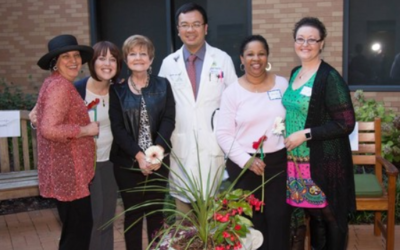Frequently Asked Questions
Here is a list of common questions we have been asked through our Facebook community. These questions and answers are to be used as a guide only. Please always consult your medical team before making any decisions regarding your health. References may include third party links.
What is a Gastrectomy?
A gastrectomy is the removal of part or all of the stomach.
There are three main types of gastrectomy:
- A partial gastrectomy is the removal of a part of the stomach. The lower half is usually removed.
- A full gastrectomy is the removal of the entire stomach.
- A sleeve gastrectomy is the removal of the left side of the stomach. This is usually performed as part of a surgery for weight loss.
Removing your stomach doesn’t take away your ability to digest liquids and foods. However, you may need to make several lifestyle changes after the procedure. (ref https://www.healthline.com/health/gastrectomy)
Other resources – https://www.nostomachforcancer.org/about/life-without-a-stomach/gastrectomy
How do I prepare for surgery and what questions do I need to ask my surgeon?
Everything you need to know can be found on the following link:-
What types of food can I eat after my surgery?
Initially after surgery you will not be able to eat very much. Certain food and drinks that you could consume prior to surgery maybe on the NO GO list, or at least for a while. Food which could potentially cause blockages (i.e peas, corn, celery, carrots), fruits high in sugar, yoghurt or drinks containing lactose, alcohol, pasta and rice are types of foods which you may need to adjust or live without depending on how your body reacts.
Some members like to keep a food journal and others use phone apps to monitor daily calories. You will find over the course of a year what you couldn’t eat in the first few months, you can try again. It will change. The main thing now is to start focusing on what you can eat, not what you can’t.
https://www.nostomachforcancer.org/about/life-without-a-stomach/nutrition-after-gastrectomy
Please follow this link from No Stomach for Cancer for all other special concerns regarding dumping syndrome, nutritional deficiencies, fat maldigesting, lactose intolerance and bone disease post surgery.
https://www.nostomachforcancer.org/about/life-without-a-stomach/special-concerns
https://debbiesdream.org/nutrition/
https://gastriccancer.org/nutrition/
Can I have a healthy, productive life after gastric surgery?
Yes, although your body will take around a year to find it’s new normal. If you like to exercise or go to the gym then consult your doctor prior to undertaking any new physical activity. Hernias are quite common post-surgery and all care must be taken when lifting or exerting yourself. Check out our videos library for some inspirational videos from members of our community.
Can I have a baby after a Gastrectomy?
We have had several Facebook members have successful pregnancies post surgery. Summer Dawn, one of our Facebook Administrators has started her own Facebook Group for those wanting to connect and discuss all things pregnancy and babies.
https://m.facebook.com/groups/262870400860370
For other FAQ’s regarding pregnancy, you may also like to read this link from the No Stomach for Cancer Website.
https://www.nostomachforcancer.org/about/life-without-a-stomach/pregnancy
What are some of the possible unpleasant side effects of surgery?
• Dramatic Weight Loss
You may experience changes as your body reacts to the rapid weight loss in the first three to six months after gastric surgery, including:
- Body aches
- Feeling tired, as if you have the fl
- Feeling cold
- Dry skin
- Hair thinning and hair loss
- Mood changes
• PTSD, Anxiety, Depression
If you feel you are suffering from any of these conditions please consult your medical team.
• Increase in Gas
It happens to the best of us! Try a daily probiotic and Google the FODMAPS diet. There are some foods that you can avoid to help elevate some of your gas issues.
• Dumping Syndrome
https://www.mayoclinic.org/diseases-conditions/dumping-syndrome/symptoms-causes/syc-20371915
• Gastrointestinal Malabsorption
https://patient.info/digestive-health/coeliac-disease-leaflet/gastrointestinal-malabsorption
https://www.webmd.com/digestive-disorders/malabsorption-syndrome#1
• Reactive Hypoglycaemia
https://www.mayoclinic.org/diseases-conditions/diabetes/expert-answers/reactive-hypoglycemia/faq-20057778
• Gall Stones associated with rapid weight loss.
• Dehydration
How soon can I go back to work?
Feedback from the Support Page Community recommend at least a 3 months recovery. Your body will tell you how ready you are and often if you go back to work too early your healing will take a few steps backwards. If you have a physically demanding job, you may need a little longer. Get the all clear from your doctors before you take the step to back to work.
How long will I be in hospital?
Typically from 3 days onwards. Your hospital stay will depend on your state of health, the type of surgery you are having and which location in the world you are having it in. This is one of the questions you may like to discuss with your surgeon.
Can I have a colonoscopy after I have a gastrectomy?
Yes you can. The prep is still extremely unpleasant and if you have issues with dehydration then consult your doctors. (Personally, I make sure I am always first on the list for the procedure. After fasting for a day and no liquids after midnight I get extremely low blood pressure. Once the procedure is done you can resume eating normally. – Michelle) You may wish to be admitted overnight if you have difficulty consuming the prep. Any concerns consult your doctor.
Will I need an Iron Infusion?
Iron infusions are very common post surgery. A blood test can determine if your levels are low.
Is having a B12 suppliment necessary?
Yes. B12 is essential especially if you have had a Total Gastrectomy. It is available via injections, oral spray and sublingual tablets. Please discuss with your doctor what will work best for you. Regular blood tests are required to monitor your B12 levels.
What is a DEXA scan?
A DEXA scan measures the density of your bones. This scan is generally performed at the same clinic every two years to keep a record of your bone density. As we are more susceptible to osteoporosis due to malnutrition deficiencies this is one way to keep an active eye on our health.
If you live in Australia this should be covered under Medicare due to your medical condition.
https://www.webmd.com/osteoporosis/guide/dexa-scan
What is an esophageal dilation?
Esophageal dilation is quite common after a gastrectomy.
It is a procedure that allows your doctor to dilate, or stretch, a narrowed area of your esophagus [swallowing tube]. Doctors can use various techniques for this procedure. Your doctor might perform the procedure as part of a sedated endoscopy. Alternatively, your doctor might apply a local anesthetic spray to the back of your throat and then pass a weighted dilator through your mouth and into your esophagus.
The most common cause of narrowing of the esophagus, or stricture, is scarring of the esophagus from reflux of stomach acid occurring in patients with heartburn. Patients with a narrowed portion of the esophagus often have trouble swallowing; food feels like it is “stuck” in the chest region, causing discomfort or pain. Less common causes of esophageal narrowing are webs or rings (which are thin layers of excess tissue), cancer of the esophagus, scarring after radiation treatment or a disorder of the way the esophagus moves [motility disorder].
(Ref https://www.asge.org/home/for-patients/patient-information/understanding-eso-dilation-updated )
Do you have anympre gastrectomy tips & experiences?
The information provided on this site is meant only as a general guide. Any information found here should not replace any directions or instructions provided by your doctor. If you have further questions, please contact your physician or Registered Dietitian. References may include third party links.
















The Story Behind the Seahorse Logo
When the original Facebook Page started in 2012, Michelle was searching for something that would represent the Stomachless Community. During her search of Stomachless creatures she came across the Seahorse. Symbolically Seahorses point to the importance of friendliness. Everyone needs a friend, and you can be one to others just by showing kindness, compassion, and generosity. She loved how this represented the intention behind what has now evolved into an amazing community.
Occasionally we will send you some helpful insights, tips, trends and ideas straight to your inbox. You may unsubscribe at anytime.
Gastrectomy Connections Community Support
Gastrectomy Connections is not a registered non profit organization, therefore any donations to our site are not tax deductable. We rely on the kindness and generosity of the community to assist with the associated costs of running our social media platforms. We are administered by a group of volunteers who generously donate their time, resources and experience to the gastric community.
News & Updates
Neuroendocrine Cancer
Hello, my name is Dale Tarrant and I currently live in Anderson, South Carolina. I am a US Navy and Army National Guard Veteran. My story begins in late September – early October of 2014. I was 53 years old at the time and had been experiencing some abdominal pain for...
Art of Survivorship Speech
I was asked by Missouri Baptist to be a speaker for their Art of Survivorship night back in October 2015. Here goes my first time to speak publicly about Cancer and how I feel about it. Survivorship…Surviving…coping Liza’s way. I find myself jumping into the deep end,...
Taking Her Power Back
After Heather’s mother passed away at age 44 of gastric cancer, and losing her grandfather to this disease, she wanted to do everything in her power to be proactive about her health risks, especially for her husband and daughter. At the age of 30, she was referred...
Get in Touch. Get Involved.
Send us a message and we will get in touch as soon as we can.



